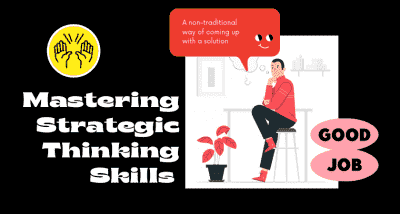Interpersonal Skills in the Workplace
- Amruta Bhaskar
- Sep 17, 2020
- 0 comment(s)
- 3118 Views

Interpersonal skills are also known as social skills. The process of using social skills is called socialization. We all learned socialization skills at an early age. Before we could even talk we were learning socialization skills from the caregivers around us. In the workplace, social skills are known as interpersonal skills. Both social skills and interpersonal skills refer to the same thing—interaction with others.
In the workplace, you will work with many people every day. Strong interpersonal skills will enable you to talk to and work with all types of people, including managers, coworkers, and customers. Interpersonal skills do more than give you the ability to communicate with other people. Interpersonal skills also help you to develop relationships with people. Strong relationships with the people you work with will help you succeed in the workplace.
Research shows that poor interpersonal skills are the number one reason why people don’t get along, don’t get promoted or, even worse, lose their jobs.
1. Managing relationships
You spend a lot of time with the people at your workplace. If you are a full-time employee, you can expect to spend 40 or more hours a week with your coworkers. You can begin to understand why it is so important to have good relationships with your coworkers and managers! Good relationships will help you get along well with people and help you to do your job better.
Have a difficult coworker or manager? Always remain polite and professional towards that person. If you need to confront that person make sure you do it thoughtfully. You never know! A difficult coworker could become a friend over time.
2. Understanding the feelings of others
The ability to understand and relate to the feelings of others is called empathy. Having empathy will help you develop strong relationships with other people. When you have empathy, people feel that you understand them and how they feel.
When people tell you about something important, it shows they feel comfortable around you. Do your best to put yourself in their shoes. Think about how you would want to be treated if you were in their position. What would you want someone to say to you? What would you hope someone would do for you?
3. Cooperating with others
Cooperating, or working well with others, is an important part of interpersonal skills in the workplace. Even though each employee might have his or her tasks and goals, the entire staff or team has the same goal. That goal is to help the company be successful. Without cooperation, the workplace can be an unpleasant place, and the company will not succeed.
Before starting on a group project or collaborating, make sure each person understands what is expected of them. Ensure each person can share his or her ideas or thoughts. Encourage your group to be a safe space for sharing and collaborating.
4. Having a Great Attitude
Having an overall positive attitude will affect many aspects of your work. A great attitude will help you cope with pressure and stress as well as help you be more flexible in your job. Always sharing a positive attitude will help you grow in your position and ultimately help you move forward in your career.
- Avoid negative thinking and complaining
- Spend time with people who have a positive attitude
- Be thankful for your job
- Give yourself a chance to recharge
- Reward yourself for doing a good job
5. Showing respect
When you show respect for others in the workplace, people will show respect for you. You can show respect for others by being polite and using your manners. Always remember to say please and thank you.
When people are talking to you, listen to what they are saying and make eye contact to show that you are listening. Wait until other people have finished talking before you respond so that you don’t cause them to forget what they wanted to say.
6. Exercising Self-Awareness
In general terms, self-awareness means that a person can consciously know what they’re feeling and why they’re feeling it. Self-awareness falls within the realm of emotional intelligence, a term coined by the author, psychologist, and Big Think expert Daniel Goleman. Emotional intelligence is comprised of four primary components:
- Self-awareness,
- Emotions,
- Empathy, and
- Relationship building.
Being aware of your feelings and emotions can help you be cognizant of the messages you convey to others whether through your words or non-verbal forms of communication. A lack of employee self-awareness can be detrimental to the success and productivity of an organization.














